
by Owen | Aug 5, 2019 | Behavioral Finance, Investment Planning
What is your risk profile? This is a key question for every investor, yet I suspect it doesn’t get the attention it deserves.
Everyone sees risk differently. Some people don’t worry about risk at all, it doesn’t keep them up at night, it doesn’t cause them any stress. To them, not taking risks seems like a waste of time and resources. They’re risk seekers.
On the other hand, some people are deeply affected by risk. It causes them to worry, to always focus on the negatives, to think about all the things that could go wrong. For them, risk causes stress and sleepless nights. They’re risk averse.
Then there is everyone in-between. People who aren’t risk seekers, but who aren’t risk averse either. They see the benefit of risk, but it makes them a bit uneasy.
Choosing the right risk profile isn’t easy. There are a lot of factors to consider. Going too far one way or their other can cause issues over the long-term. But sometimes it takes some real-world experience before you can safely say what you’re risk profile truly is.
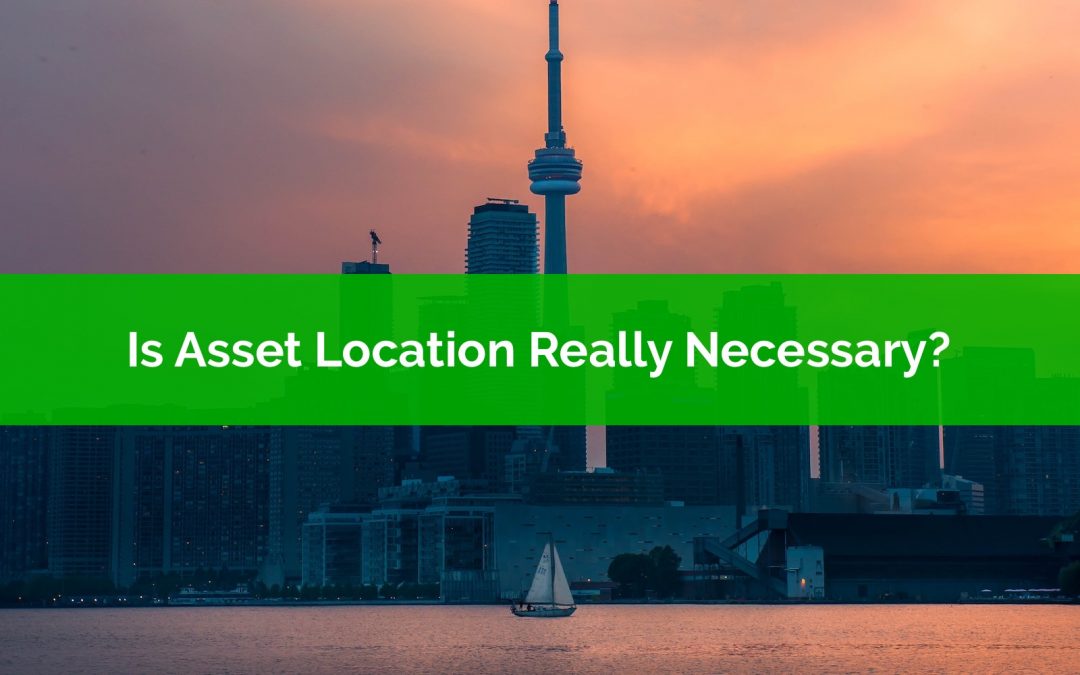
by Owen | Jul 29, 2019 | Investment Planning, Tax Planning
Asset location is the idea that certain assets are more tax efficient when held in certain types of accounts. Different assets classes, and more specifically different types of income, are taxed differently in Canada. Dividends are treated differently than capital gains which are treated differently than interest income. Even certain investments inside “tax free” accounts like the TFSA and RRSP can sometimes lose money to taxes but many people may not realize this.
When you’re just starting out you might hold bonds/fixed income, Canadian equities, US equities, and global equities all in one account (probably the TFSA if you’re just starting out). When you’re just using one account, asset location is less of a concern, but once you start to use a second account (maybe an RRSP), then you may want to ensure you have the right asset in the right place to minimize the drag of taxes.
This becomes especially important after you’ve maximized your TFSA and RRSP and have started to use a non-registered account. Non-registered investments are fully taxable at your marginal tax rate so it’s a good idea to put the most tax efficient investments inside your non-registered account.
Taking advantage of an asset location strategy requires a bit of work. Rather than having the same asset allocation in each account (which is super easy to manage), it means having different assets in each account and managing asset allocation across the entire portfolio.
How much money do you need to have in non-registered assets before asset location adds value? $50,000? $100,000? $500,000? $1,000,000? Let’s take a look…
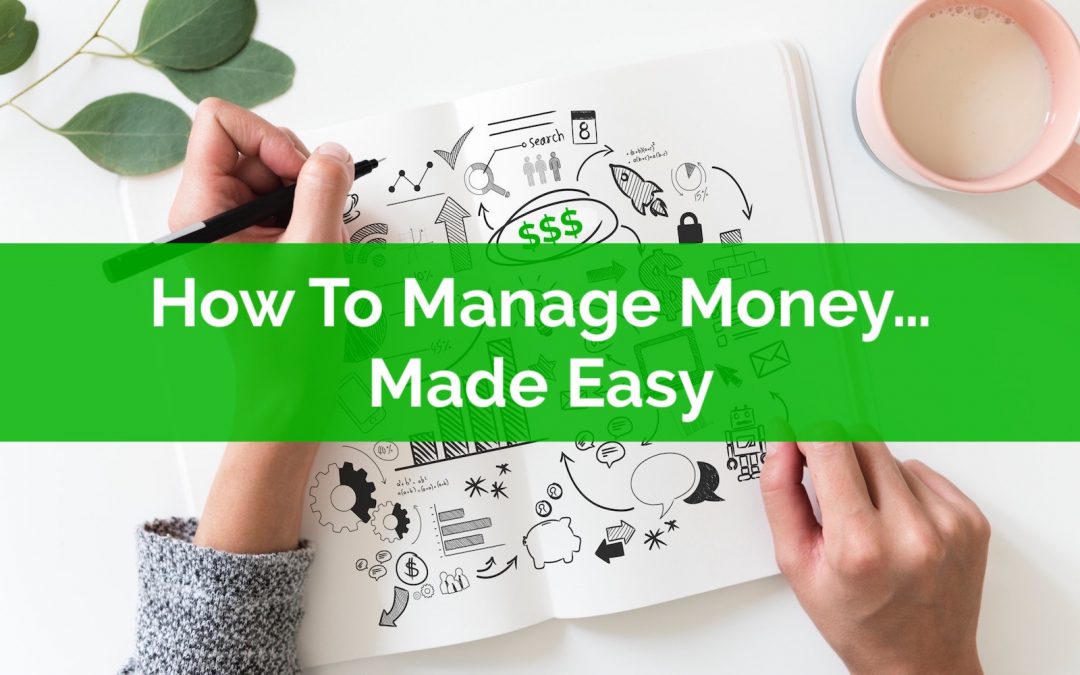
by Owen | Jun 24, 2019 | Behavioral Finance, Budgeting, Emergency Fund, Investment Planning
Managing money is an important life skill. Whether you’re a few years into your first job, or a few years away from retirement, do it well and your financial stress will disappear. Do it poorly and you’ll probably find yourself in a difficult situation more often than not.
The problem is we were never taught how to do this! We were never told how to manage our money. We were never told how to budget, how to pay bills, how to invest, or how to save.
We were never taught about best practices like emergency funds or automated investment plans.
Some of us may have been lucky enough to have a parent or older sibling who was good with money. We were able to learn by watching them manage their money. But because money is so secretive, its often hard to see what they were actually doing on a day-to-day basis.
This post will cover a few of the best practices, the best money management tips, and the best ways to manage your money.
If you’re reading this post my guess is that you’re probably already doing some of these things, or maybe all of them! But you might find something new to add to your financial routine. Something to make it stronger and easier to manage in the future.
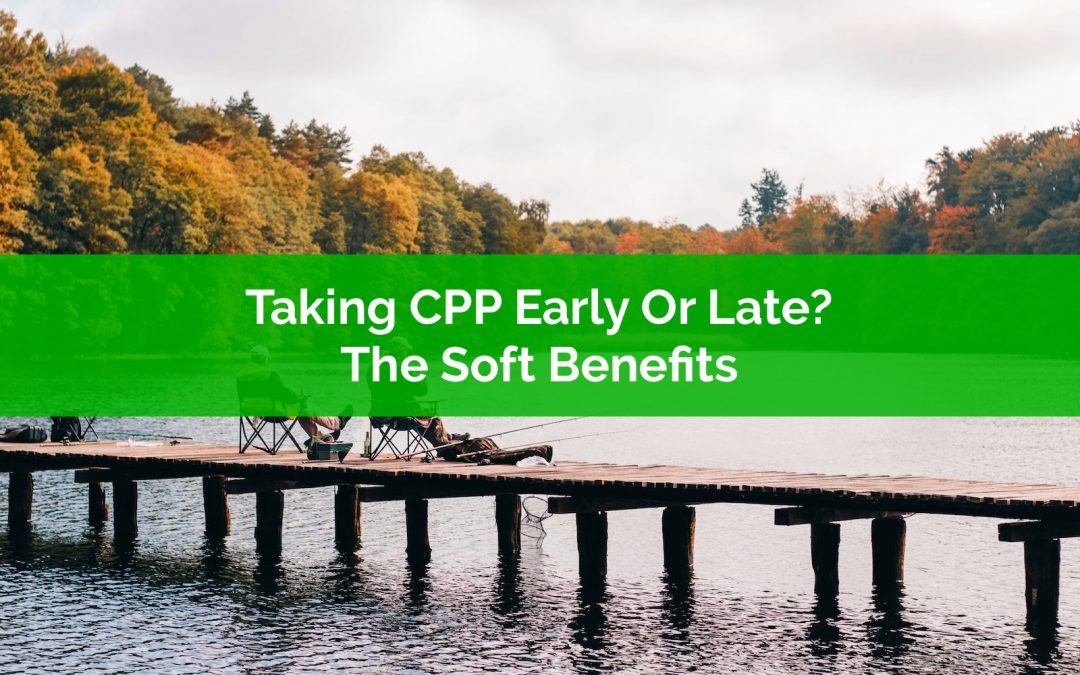
by Owen | Jun 17, 2019 | Government Programs, Investment Planning, Retirement Planning
In the last blog post we looked at the financial considerations when deciding to take CPP early or late. But personal finance is never just about the money. Half of personal finance is personal. The “best” path varies from person to person even when the numbers are exactly the same. When it comes to taking CPP early or late these personal considerations can make a big difference.
There are many “soft benefits” to taking CPP early or late. These benefits can make taking CPP early look more favorable… or it can make taking CPP later look more favorable… it just depends on how much YOU value each benefit.
Before deciding to take CPP early or late it’s important to understand what your goals are for retirement. Not just financial goals but personal goals. What do you want to do in retirement? What does your retirement look like? This may inform some of your decisions around these “soft benefits”
It can also help to have a financial plan and see how taking CPP early or late helps you achieve your financial goals. Everyone is different, and the decision to take CPP wont be the same for everyone.
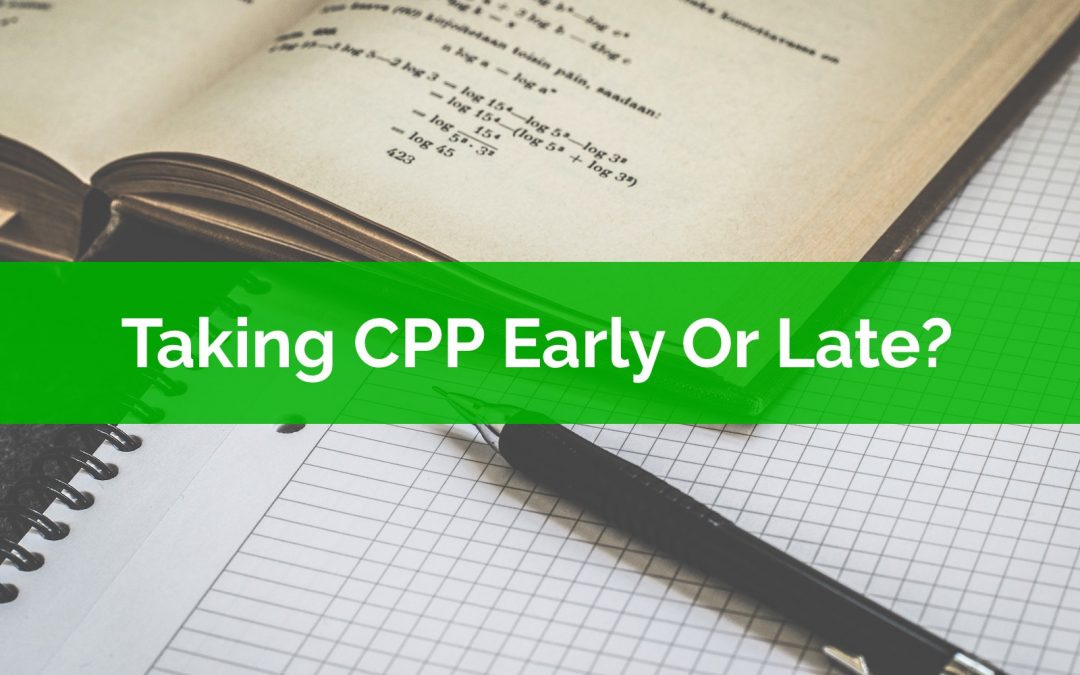
by Owen | Jun 10, 2019 | Government Programs, Investment Planning, Retirement Planning
Should you take CPP early or late? Are you considering taking CPP early? Are you wondering if you should delay? Should you take it early at age 60? Should you wait until regular retirement age at 65? Should you delay until age 70, the last date possible?
When to start taking CPP is just one of the many difficult decisions soon-to-be retirees face as they approach their retirement date.
It’s a big decision, and like many financial decisions there are many aspects to consider when deciding when to take CPP.
When a soon-to-be retiree is deciding to take CPP early or late there are both financial considerations as well as non-financial considerations to weigh.
Taking CPP late can provide a financial benefit if you plan to live past a certain age. This is a number and it’s easier to evaluate but it’s based on longevity, which is a big unknown.
Taking CPP late also has non-financial considerations. There are “soft benefits” to delaying CPP. Depending on how much you value these soft benefits they can be worth quite a bit as well.
Even when two people have the exact same financial situation, they may choose different times to start CPP simply due to these longevity questions and soft benefits.
When deciding to take CPP or delay its first important to get basic understanding of how CPP works and how CPP payments change each year as you delay.
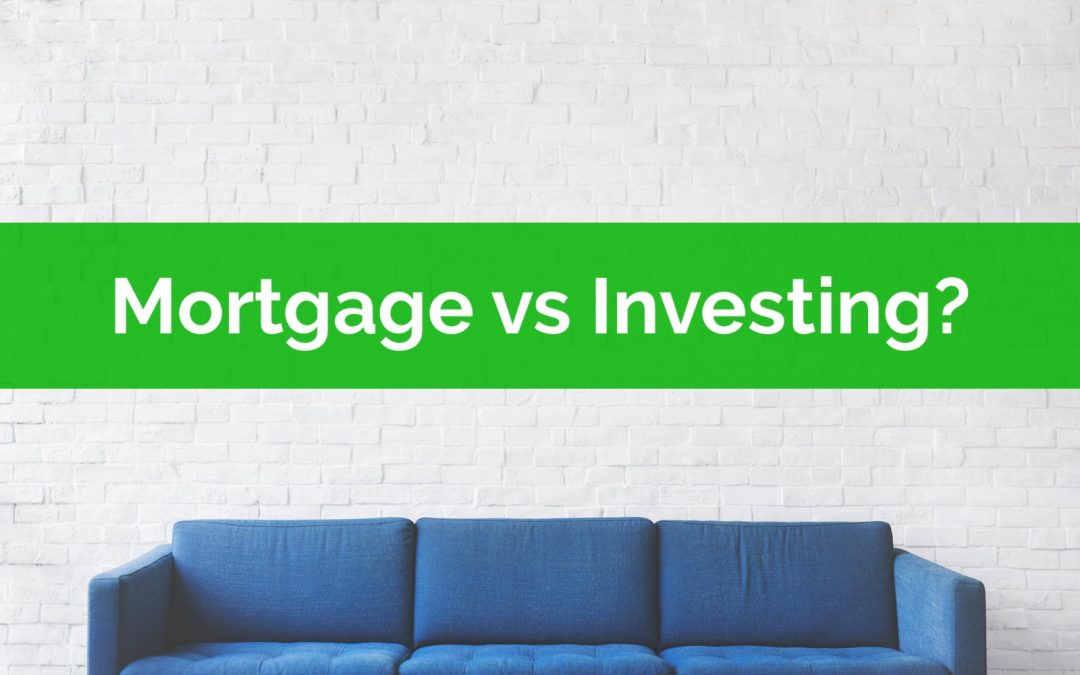
by Owen | Jun 3, 2019 | Behavioral Finance, Buying A Home, Financial Goals, Investment Planning
Paying off the mortgage early can be a fantastic financial goal. In the last post, we looked at the different ways to pay off a mortgage early, how to make a mortgage payoff plan, and talked a little bit about the benefit of paying off the mortgage early.
In this post, we’re going to look at some considerations when deciding to pay off the mortgage early vs investing. This is a common dilemma for many people in Canada. Where should they put extra cash? Against the mortgage? Or in non-registered investments?
Generally, it’s better to invest inside an TFSA or RRSP before choosing to pay off the mortgage early. There is no annual tax impact when investing inside either of these two accounts. Investments can grow tax free. This can make it more attractive to invest inside an tax advantaged account before paying off the mortgage early. But not always…
RRSPs can be counterproductive at certain income levels and in certain situations. Investing inside an RRSP for someone expecting a very low income in retirement might not be the best use of those extra funds. They may experience large GIS claw backs on RRSP withdrawals in retirement. In those cases, it may make sense to pay off the mortgage early before maximizing RRSP contribution room.
As always, when making a financial decision, like paying off the mortgage early vs investing, it’s important to look at the whole financial picture and not just one aspect. If you’re struggling with this decision then it might be helpful to get a custom financial plan from an advice-only planner.
Deciding to pay off the mortgage or invest isn’t just about taxes and investment returns… there are also a bunch of soft benefits to consider. These aren’t pure financial benefits but they can still be “worth” a lot depending on how much you value them. Make sure you consider the financial benefit of paying off the mortgage early but also the soft benefits as well.
To decide between paying off the mortgage or investing we absolutely need to look at the after-tax rates of return. We’re going to assume that we’ve maximized our RRSP and TFSA contribution room already and are deciding between paying off the mortgage or investing in a non-registered investment account.
Page 13 of 15«...1112131415»






